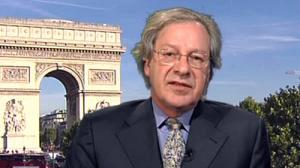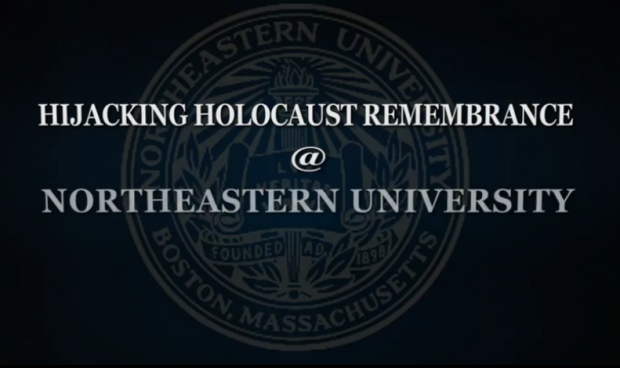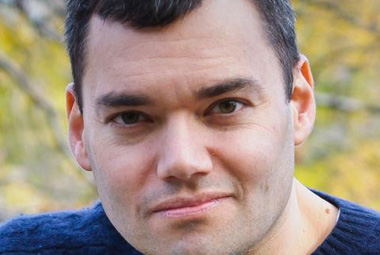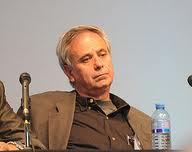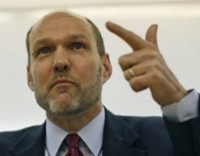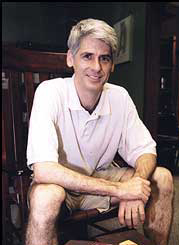Recent Entries:
Author: AL
November 18, 2012
Rocket Perspective
Israel’s outsized image on the world stage and in front-page media coverage can obscure the reality of its tiny physical size and the vulnerability of its citizenry. Gaza rocket fire doesn’t affect only a distant corner of the nation — but nearly half the populace is in range. An IDF comparison to the US, Britain and France underscores what would be a relative threat in those nations.
October 23, 2012
NYT’s Erlanger Skew(er)s Israel
The propensity to hector and criticize Israel seems bred in the bone at The New York Times, as commentary by Paris Bureau Chief Steven Erlanger underscores in a telling passage on October 23, 2012. A News Analysis column entitled “Foreign Policy Debate’s Omissions Highlight Skewed World View” deplores the various world issues overlooked in the October 22 presidential debate on foreign affairs.
But Erlanger’s own skewed world view is what’s on display. In reviewing the neglected world hotspots, he touches on the Palestinians and Israelis, writing:
There was a glancing reference to the Palestinians, but no discussion of their divisions, of the role of Hamas, of the separate status of Gaza, of the weakening grip of Mahmoud Abbas and his Fatah movement, of what might happen if and when Mr. Abbas, the Palestinian president and leader of the Palestine Liberation Organization, leaves the scene.
And there was no criticism of Israel, its settlements or its occupation of the West Bank. Mr. Romney did say that Mr. Obama had not visited Israel as president even after his 2009 visit to Cairo in which he pledged a new era in relations with the Muslim world.
Get that?
Regarding the Palestinians, Erlanger faults omission of “discussion” of internal “divisions” among the factions.
Regarding the Israelis, he faults omission of “criticism of Israel, its settlements or its occupation of the West Bank.”
This discrepancy in treatment of Israel, with the Jewish state cast as warranting serious criticism for activity related to the Palestinians while the Palestinians warrant only benign reference — in this case discussion concerning internal, factional issues with no onus on them related to Israel — is a pattern in the paper.
Equally notable and related to the distorted emphasis on blaming Israel is the omission of deplorable Palestinian conduct. The veteran Times correspondent, formerly the bureau chief in Jerusalem, previously had similar difficulty expressing criticism of Palestinian actions, in particular of their denigration of Jewish presence in the land of Israel, their glorification of terrorism against Jews and their calls to destroy Israel.
The saga of Erlanger’s avoidance of coverage of anti-Israel incitement until he’d left Israel was noted by CAMERA in 2008. That bout of candor by the Times writer seems to have long passed.
And, as they say in Paris, plus ça change, plus c’est la même chose!
August 21, 2012
Karsh: “The War Against the Jews”
Professor Efraim KarshIn a powerful essay in the July 2012 edition of Israel Affairs, Professor Efraim Karsh lays out the political landscape in which Israel today finds itself. The Jewish nation-state was reconstituted with the aim of putting the past behind, with all its irrational bigotries directed at the individual Jew, of creating normal inter-national relationships. But the world’s “millenarian obsession” with the Jews has, in Karsh’s unflinching review, continued. That obsession is reflected on the one hand in grossly unwarranted U.N. scrutiny and censure of Israel, in irrational linkages of Israel to Nazis and apartheid racism, and on the other in global indifference to the perpetrators of slaughter in Africa, Asia and the Middle East.
He offers no answers to the onslaught, but his essay stands as a reminder that myopic media focus on everything Israel does and says — as well as media bias and falsification of the realities — are an enormous part of the problem.
Karsh’s account, for instance, runs directly counter to the overarching message of New York Times coverage which is that, but for myriad Israeli shortcomings, the lambs would lie down with the lions.
April 2, 2012
Video Exposes Northeastern Univ Holocaust Offenses
A new video exposes reckless disregard for scholarship and ethics at another university, continuing a trend. Northeastern University in Boston accepted funds for a Jewish Studies Chair from a donor concerned about preserving memory of the Holocaust, then allowed biased faculty and negligent administrators to “pervert” the clear aim of the donor, enlisting anti-Israel speakers who equated Israeli conduct with that of the Nazis.
Hijacking Holocaust Remembrance was produced by Americans for Peace and Tolerance. It lays out the disturbing story, citing the extreme anti-Israel speakers presented and an event that brought the matter to a head. Filmmaker Yoav Shamir and his anti-Israel work, Defamation, claiming Jews exploit the Holocaust to justify Israeli aggression were to be featured during Holocaust Remembrance Week in 2011. When Steven Stotsky, whose father had given Northeastern the Jewish Studies chair (and who is a Senior Research Analyst at CAMERA) discovered all this he wrote a column for the Boston Jewish Advocate. Shamir didn’t, in the end, appear as a Holocaust comemoration speaker, but he and his film — lauded on neo-Nazi Web sites — were given a platform later in the year.
March 29, 2012
Oil and Anti-Semitism
Saudi Prince Alwaleed Bin TalalHistorian Victor Davis Hanson asks “Why does the international community hate Israel so much?” The answers include not just the dimming memory of the Holocaust and, with that, the lessening restraint on anti-Semites and the far-left’s pernicious claim that Israel is an imperial force, but also the vast impact of Arab, especially Saudi, oil money spreading enmity toward the Jewish state.
[S]ince the 1960s, trillions of petrodollars have flowed into the Islamic Middle East, not just ensuring that Israel’s enemies now were armed, ascendant, and flanked by powerful Western friends, but through contributions, donations, and endowments also deeply embedded within Western thought and society itself. Universities suddenly sought endowed Middle East professorships and legions of full tuition-paying Middle East undergraduates. Had Israel the oil reserves of Saudi Arabia, then “occupied” Palestine might have resonated at the UN about as much as Ossetia, Kashmir, or the Western Sahara does today.
The recent One-State conference at Harvard University is but the most recent instance of the expanding influence of anti-Israel ideology in the academy, a shift occurring against a backdrop of millions in donated oil money.
Harvard’s Prince Alwaleed Bin Talal Islamic Studies Program is named after the donor of $20 million who underwrites that endeavor.
In the UK too, Alwaleed Bin Talal and other oil potentates have poured funds into universities, influencing discourse against both Israel and the West generally.
According to a 2011 Telegraph story:
Between 1995 and 2008, eight universities – Oxford, Cambridge, Durham, University College London, the LSE, Exeter, Dundee and City – accepted more than £233.5 million from Muslim rulers and those closely connected to them
(Bin Talal’s largesse in the form of a $10 million donation was rejected by Mayor Giuliani in the wake of 9/11 because of the Saudi’s linkage of the terrorist attack to Israeli treatment of Palestinians.)
March 20, 2012
Beinart’s Anti-Israel Ambitions
Peter BeinartIt’s no surprise The New York Times published Peter Beinart’s column calling for a boycott of Israeli settlements. The Op-Ed pages are a forum for extreme voices and radical anti-Israel positions.
Beinart’s joining the extremists may win him speaking engagements and plaudits in some venues but he’s also clarifying who he is for a lot of other (mainstream) news consumers. As Richard Baehr spells out in Israel Hayom it’s clear what he’s up to. Nothing advances a lagging career like Israel-bashing.
[I]n early 2010, Beinart chose to follow the Walt-Mearsheimer model. In an article in the New York Review of Books, he bemoaned the loss of support (and even hostility) for Israel among young educated Jews, and decided that his sympathies were with this camp of Jews who had become alienated from Israel.
Claims that young Jews are largely disaffected from Israel are specious, but the argument serves as the favored excuse for the far left to join Israel’s attackers. (Various polls show continuing strong sympathy of Jewish youth for Israel. The Cohen Center for Modern Jewish Studies at Brandeis study found the Beinart/J Street theme of younger Jewish “distancing” from Israel to be false. A CAMERA/Luntz poll in May 2011 found young Jews to be sympathetic to Israel in nearly the same degree as the older population.)
March 9, 2012
Being There at the Harvard Hate-Fest
Leila Farsakh, Associate Prof at UMass Boston, and Baylor Professor Marc Ellis It can’t have been easy for anyone concerned with facts, history, reason, scholarship, moral clarity and so on to spend a weekend listening to anti-Israel agitprop at Harvard’s One-State Conference. Janet Tassel’s mordant review of the gathering in today’s American Thinker offers insights into the speakers’ views on dissolution of the Jewish state and their speculation on the fate of its Jewish inhabitants.
One possibility for the newly disempowered Israeli Jews, said Leila Farsakh, associate professor in political science at the University of Massachusetts at Boston, would be to “reconnect with their Arabism.” Indeed, the term “Arab Jew” became ubiquitous toward the end of the conference. Or, as Marc Ellis, director of the Center for Jewish Studies at Baylor University, himself a Jew, said, “Becoming un-Jewish is the first step.” After that would come, in his words, “revolutionary forgiveness.”
Among the Harvard faculty to appear were the notorious Stephen Walt in addition to less well-known figures like
Timothy McCarthy, a lecturer at the Kennedy School, who dissolved into tears when he recalled [a six-city LGBT trip to Israel that met with] groups like Palestinian Queers for Boycott, Divestment and Sanctions…
Although he described himself as “a fierce queen” who “steps right up to bullies,” he brimmingly lamented that he found “violence all over Israel”It’s probably too much to hope the many scholars at the university who care about the truth and the many concerned trustees who care about the reputation of the institution and the many brilliant students who know hate-mongering doesn’t belong at the Kennedy School will all use this as an opportunity to investigate what’s gone so wrong.
February 27, 2012
Times of Israel on Harvard’s One-State Fest
Ali Abunima, a keynote speaker at the Harvard conferenceThe newly-launched Times of Israel has taken on the intensifying controversy surrounding Harvard’s hosting a two-day, high-profile conference giving a platform to radical anti-Israel figures who seek the dissolution of the Jewish state.
February 22, 2012
Harvard Hate Fest
Illan Pappé and Stephen Walt The Harvard-conference-to-dismantle-Israel story grows. In the Jerusalem Post, Caroline Glick notes regarding the event at her alma mater:
In the decades before the Holocaust, an evil wind blew through academia and other elite quarters throughout the Western world….
Likewise, today’s crop of corrupt intellectuals of the Walt and Mearshimer variety with all their allies in academia and the media and the blogosphere and politics are seeking to delegitimize Israel – the collective Jew — intellectually.
In Israel Hayom, Richard Baehr points out how heavily involved American Jews are in elite universities — as donors, professors and students. But
One thing the Jewish parents of future hedge-fund managers, lawyers, professors, elected officials, doctors, dentists, veterinarians, journalists and corporate leaders are probably not counting on is that their children will be entering the most toxic environment in America – at least when it comes to attitudes toward Israel.
At Frontpagemag, Steve Plaut reminds readers who Illan Pappé is, one of the leading lights of the Harvard gathering,
Pappé roams the world and continues to spread the lie about the imaginary Tantura “massacre,” a lie that has found its way into nearly every anti-Semitic web site and Neo-Nazi magazine on Earth, and even a handful of otherwise respectable mainstream journalists foolishly rely upon him. Pappé has lied about practically everything else, including about being “persecuted” by his own university in Israel.
January 17, 2012
Carnegie Mellon’s Prize for Bigotry
Professor Jim Daniels, poet and founder of MLK writing contest It’s a cliché of the anti-Israel and anti-Semitic repertoire: The trusting young Jew who once believed in Israel’s righteousness, but learns the “facts,” wakes up to the reality that, actually, the nation is a criminal entity and then (heroically) speaks out. Young Jesse Lieberfeld not only produced a lurid screed on the theme, but won a prize for it sponsored by the Carnegie Mellon English department, Student Affairs, and the Office of the President.
Jesse laments that:
I was forever reminded … to be proud of all the suffering our people had overcome in order to finally achieve their dream in the perfect society of Israel.
This last mandatory belief was one which I never fully understood, but I always kept the doubts I had about Israel’s spotless reputation to the back of my mind. “Our people” were fighting a war, one I did not fully comprehend, but I naturally assumed that it must be justified…
Yet as I came to learn more about our so-called “conflict” with the Palestinians, I grew more concerned. I routinely heard about unexplained mass killings, attacks on medical bases and other alarmingly violent actions for which I could see no possible reason. “Genocide” almost seemed the more appropriate term, yet no one I knew would have ever dreamed of portraying the war in that manner; they always described the situation in shockingly neutral terms.
No one he knew would dream of portraying Israel harshly? How about Daniel Lieberfeld, his father, who signed an anti-Israel petition at the height of the terror war against Israel in August 2001?
Why is Jesse reminded of Martin Luther King in all this? When friends on his school bus are impervious to “a fresh round of killings” and urge him simply to “defend our race” Jesse recalls the civil rights leader:
Where had I heard that before? Wasn’t it the same excuse our own country had used to justify its abuses of African-Americans 60 years ago?
Hence the essay and the accolades. Jesse explains that speaking out against Israel is like King speaking out against white supremacists.
Jesse’s prize, part of a 2012 Martin Luther King Writing Award and brainchild of Jim Daniels, the Thomas Stockham Baker Professor of English, is described in a university press release.
Among many questions is why and how poet Jim Daniels came to hold anti-Israel views so extreme that he apparently believes the country is perpetrating a “genocide” (against a population that has been growing at a healthy clip for 60 years) and disregarded Martin Luther King’s own strong support for the Jewish state.
Search:
Search this site:


